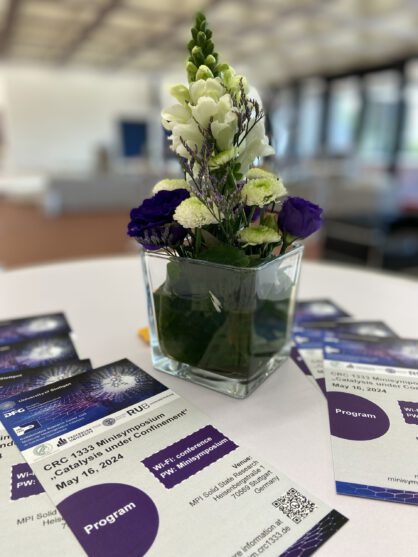We look back with delight on the succesful CRC 1333 Minisymposium “Catalysis under Confinement”, which took place on May 16, 2024 at the Max-Planck Institute for Solid State Research in Stuttgart.
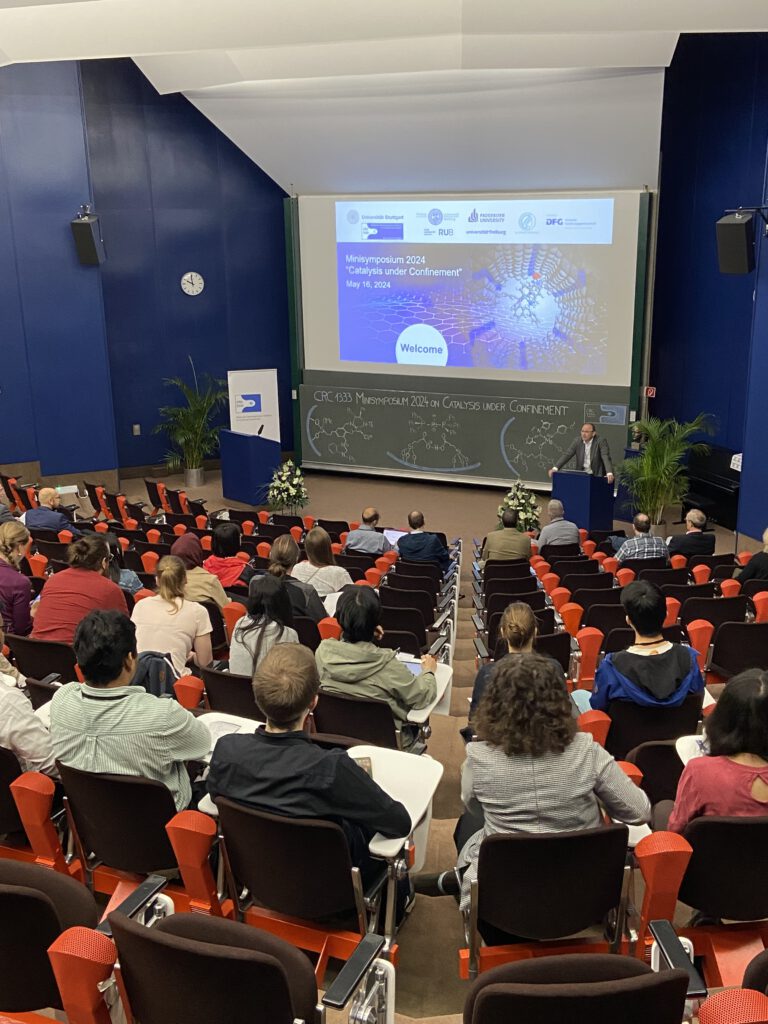
Prof. Michael R. Buchmeiser, spokesperson of the CC 1333 during the opening of the Minisymposium
The CRC 1333 Minisymposium was attended by almost 100 people, who came not only to listen to our keynote speakers Prof. Ainara Nova Flores from the University of Oslo, Prof. Thomas R. Ward from the University of Basel and Prof. Matthew P. Conley from the University of California – Riverside and our CRC 1333 speakers, but also to exchange ideas and research results with other scientists working in the field of catalysis around the world during the breaks and our poster session.
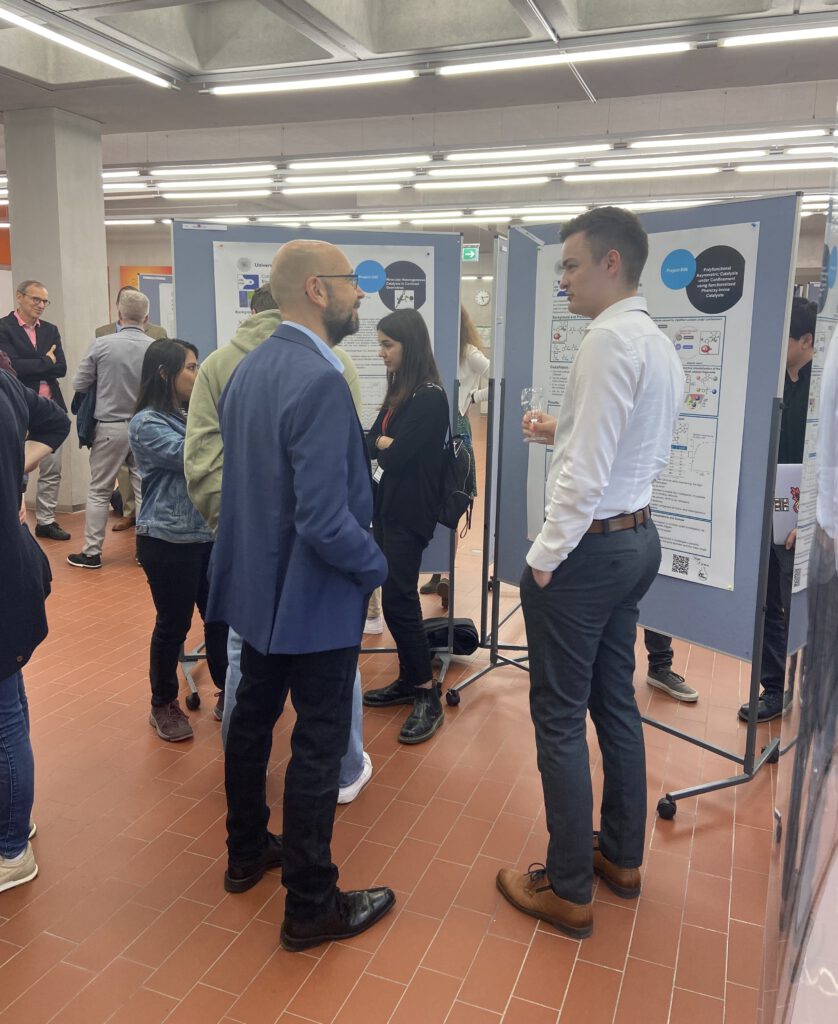
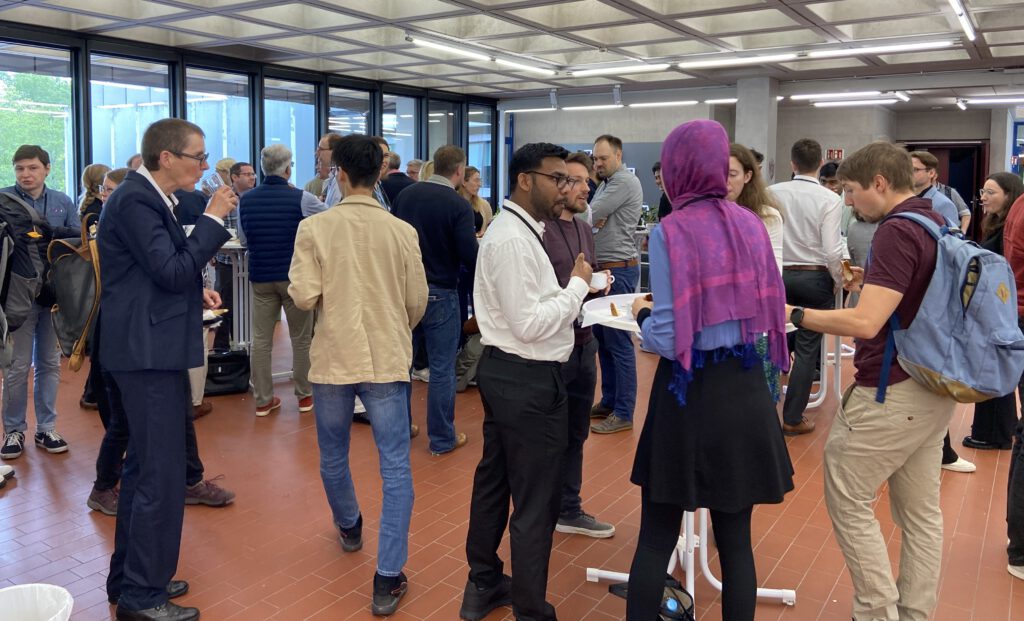
The day was opened by Prof. Ainara Nova Flores, who gave a virtual keynote talk on the topic of “Modelling reaction mechanisms on multicomponent porous materials”, and presented how her group approaches these challenges using some examples involving functionalized Zr-based UiO MOFs.
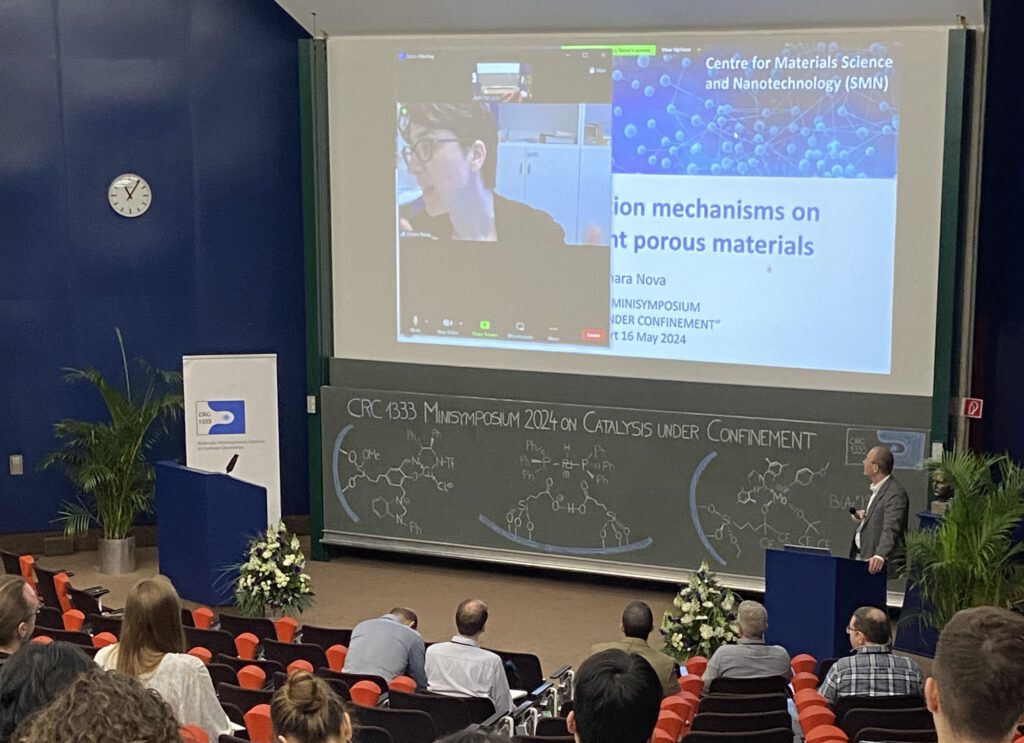
Prof. Ainara Nova Flores during the Q&A session of her keynote lecture
CRC 1333 Principal Investigator (PI) and recently appointed Professor at the University of Freiburg, Stefan Naumann, spoke about “Ordered Mesoporous Carbons with Defined Pore Sizes: Particles and Self-Supporting Films”, followed by his CRC 1333 colleagues from the University of Stuttgart, Prof. Blazej Grabowski and Prof. Thomas Sottmann, who spoke about “Atomic-scale understanding of mesoporous metallosilicates via ab initio-based machine learning potentials” and “Time-resolved USAXS and contrast-modified SANS probing ZnO nanocluster formation and mesopore-induced solvent segregation”.
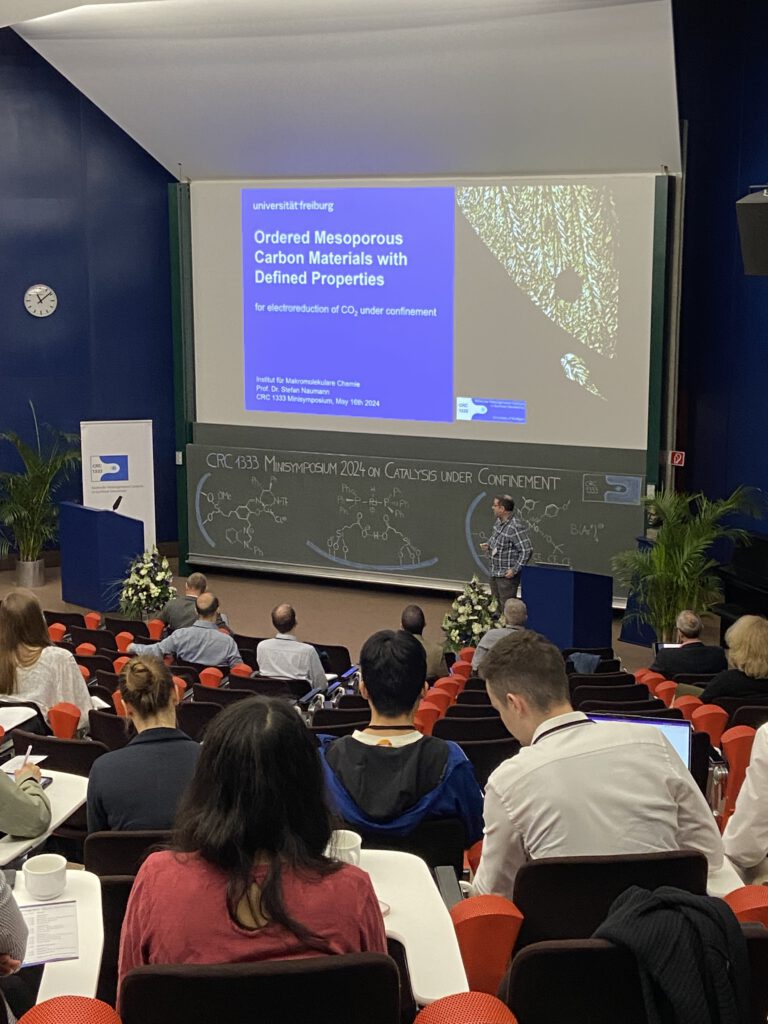
CRC 1333 PI Prof. Stefan Naumann
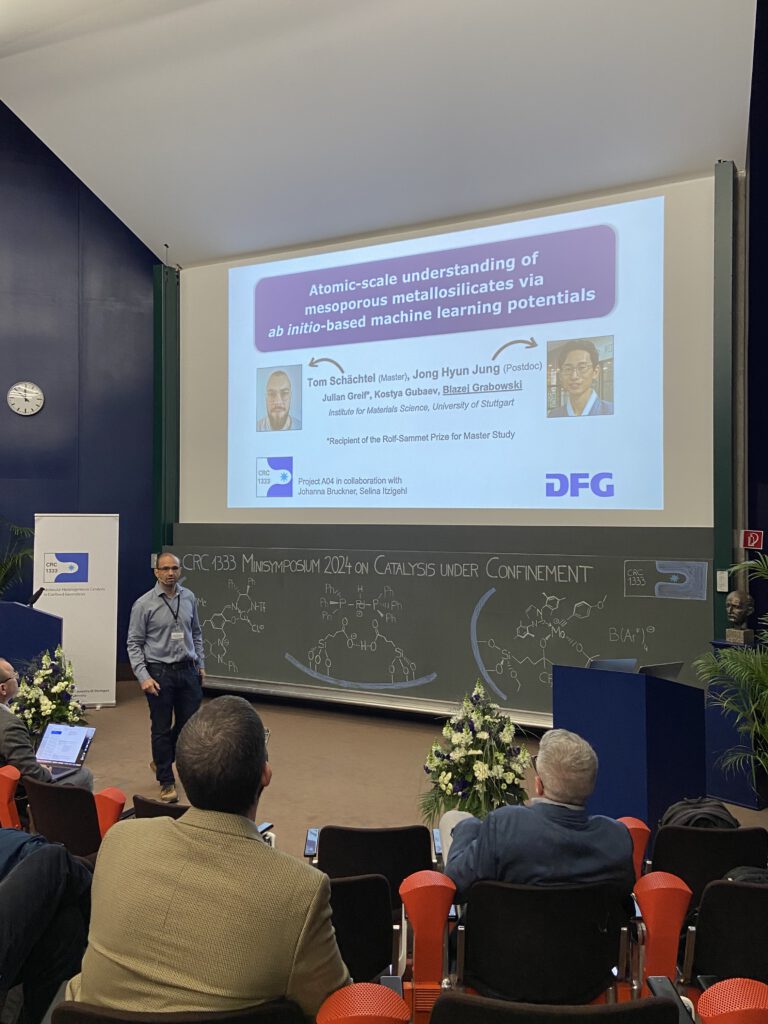
CRC 1333 PI Prof. Blazej Grabowski
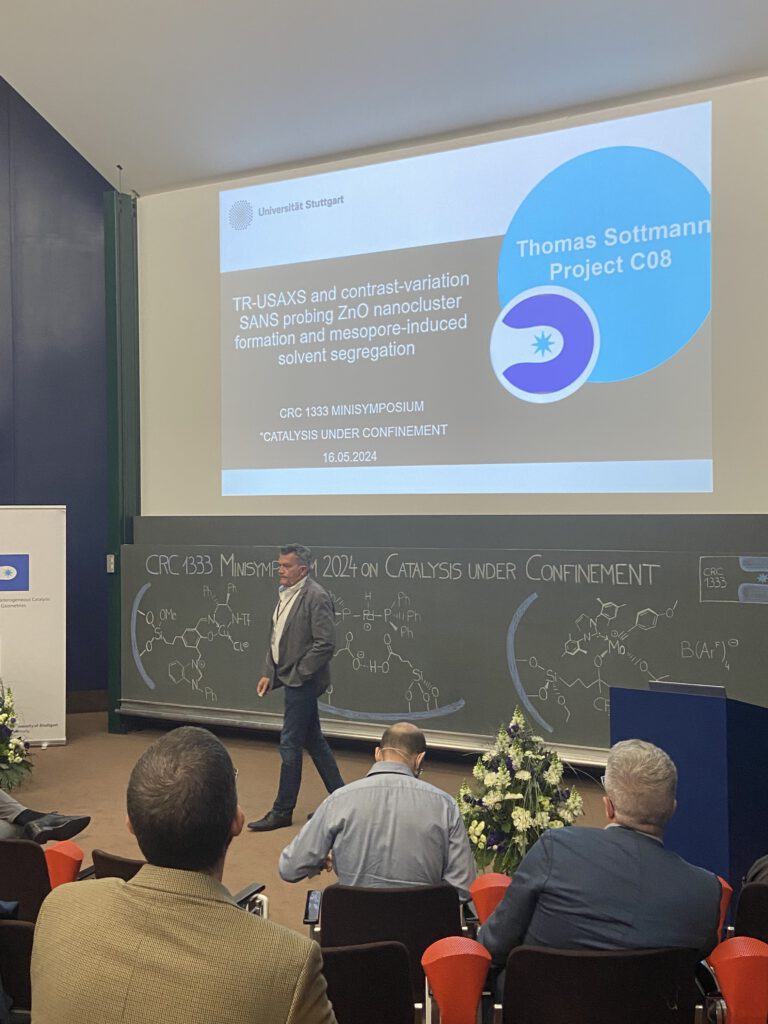
CRC 1333 PI Prof. Thomas Sottmann
The second keynote talk was held by Prof. Thomas Ward, who spoke about “Artificial Metalloenzymes for Carbene and Nitrene Chemistry: Challenges and Opportunities”.
Artificial metalloenzymes (ArMs) have attracted increasing attention in the past two decades as attractive alternatives to either homogeneous catalysts or enzymes. Prof. Ward’s talk highlighted the recent progress in his group in engineering and evolving such hybrid catalysts for olefin metathesis, carbene insertion, and nitrene insertion.
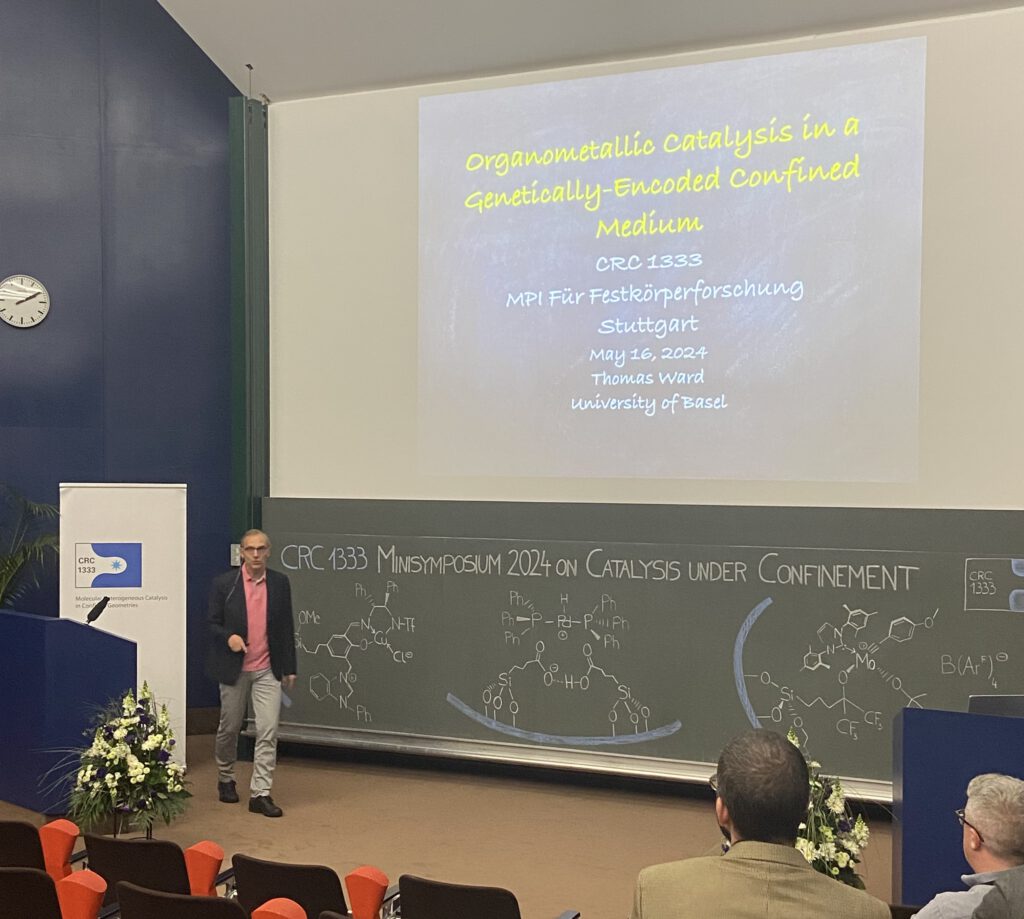
Prof. Thomas R. Ward during his keynote lecture
Two speakers from the CRC 1333 followed this interesting keynote lecture: Prof. Matthias Bauer spoke about “New and old X-ray spectroscopy to understand molecular catalysts in confinements” and Dr. Kristyna Pluhackova spoke about “(Un)Caged proline catalyst: teaching an old dog new tricks”.
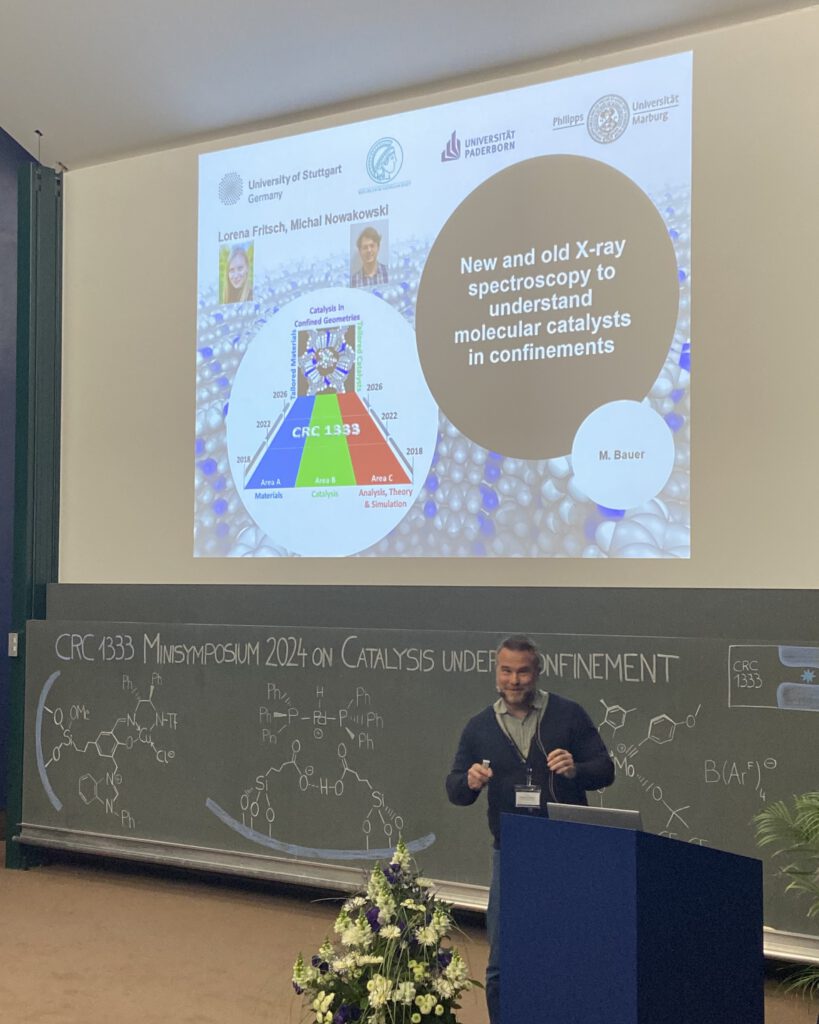
CRC 1333 PI Prof. Matthias Bauer
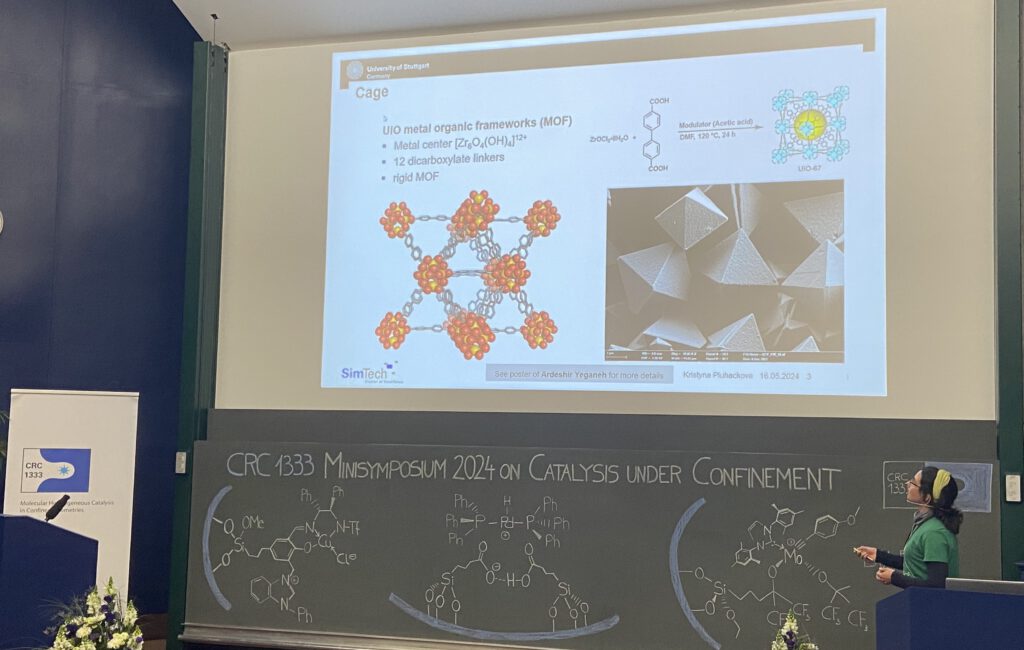
CRC 1333 PI Dr. Kristyna Pluhackova
Following our poster session, which fostered great scientific exchange among the participants, the final keynote presentation of the day was given by Prof. Matthey P. Conley on “Polyolefin Plastics: Building them Up and Breaking them Down”, describing some of his group’s efforts to generate well-defined organometallics on oxide surfaces that behave similarly to weakly coordinating anions..
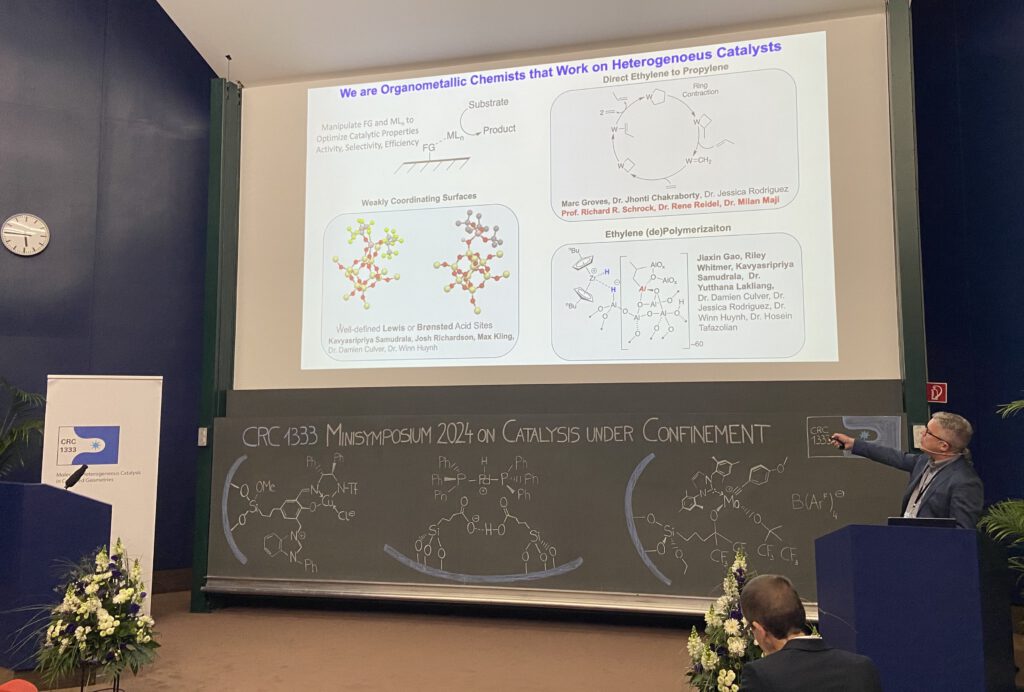
Prof. Matthew P. Conley during his keynote lecture
The CRC 1333 Minisymposium also included an after-conference school on May 17, aimed at post docs and doctoral researchers, covering the topics of special measurement and analysis equipment as well as data management. About fifty participants attended the four different courses.
We would like to thank all speakers and participants for making this CRC 1333 Minisymposium such a successful event.
